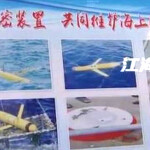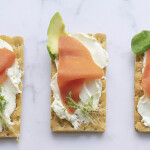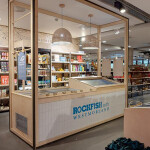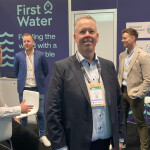There are good reasons for Europe’s aquaculture industry to be optimistic about its future, but it must overcome some weighty negative public perceptions, the members of a special conference session organized by the European Market Observatory for Fisheries and Aquaculture (EUMOFA) at the 2023 Seafood Expo Global agreed.
European Commission (DG MARE) Policy Officer Laurène Jolly said the European Union’s latest figures put seafood consumption across the Europea Union at 23 kilograms per capita, with farmed products accounting for 6.49 kilos of that total. In total, aquaculture accounts for 28 percent of E.U. citizens’ fish diet, and this share has been increasing since 2019, she said.
“It reflects the supply in the market, which is mainly coming from E.U. fisheries, while European aquaculture is around 1.09 million metric tons [MT] and has a 10 percent share,” Jolly said.
Global aquaculture production has risen rapidly, led by growth in Asia, but output has been flat in Europe, Jolly said.
E.U. consumer purchasing behavior data shows ther is now “no clear preference for fisheries’ products,” with EUMOFA’s latest analysis finding that just one-third of the population favors wild-caught and that the most-consumed species across the region are farmed products, with salmon, trout, shrimp, and mussels collectively accounting for 23 percent of E.U. residents’ consumption.
“On a month-by-month basis, these products are also eaten in higher proportions at Easter and Christmas, which means that they are consumed at special occasions and that consumers consider them to be high-value products. There is also a demand for certified products, and we are seeing an increase in quality schemes like [protected geographical indications] in the E.U. market,” Jolly said.
However, while E.U. consumers are by and large accepting of aquaculture products, they generally oppose the further development of the aquaculture industry, a factor that is hindering its growth, Jolly said. Therefore, one part of a four-point strategy led by EUMOFA and launched in 2021 to establish a more-competitive and -resilient aquaculture industry is focused on social acceptance of aquaculture through the provision of additional clear information about the industry.
“We are currently working on a communication campaign that will aim to inform E.U. citizens about the benefits of E.U. aquaculture,” Jolly said. “For this, we will develop some tools for national and regional authorities to promote [the industry].”
The initiative could prove timely, according to Federation of European Aquaculture Producers (FEAP) Secretary General Javier Ojeda. Ojeda said the present lack of social acceptance is “the key bottleneck” for the industry inside the Union and suggested that a big part of the problem is that a lot of E.U. aquaculture occurs in public spaces.
“It’s true that we are requesting to use areas of water that belong to everybody for exclusive use and for 10, 20, 30, or maybe 50 years. So, it’s reasonable that governments and public administration have some issues, and social acceptability is essential to get that license to produce,” Ojeda said. “But today, aquaculture in the E.U. is not growing; it has been stagnant since the turn of the century, and there is not any impression that things will change over the next few years. That’s not only sad from an industry perspective, it’s also an economic activity [that] provides employment, and above all, it provides food. Today, and in the future, food production is becoming more and more important.”
According to Ojeda, Europe’s aquaculture sector has shifted from ...
Photo courtesy of Federation of European Aquaculture Producers








